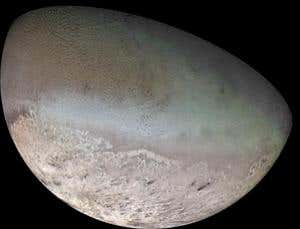Aug 26, 2012
BEO-HSF again
Posted by Gary Michael Church in categories: asteroid/comet impacts, biotech/medical, business, chemistry, counterterrorism, defense, economics, education, engineering, ethics, events, existential risks, finance, futurism, geopolitics, habitats, human trajectories, life extension, lifeboat, media & arts, military, nuclear weapons, physics, policy, space, sustainability, transparency
This essay was posted last year, removed, and is back with small changes. Enjoy.
I became interested in Beyond Earth Orbit- Human Space Flight by way of a college paper I helped my wife research some years ago. Her project for an ethics class was nuclear weapons. I stumbled upon the book “Project Orion, the true story of the atomic spaceship” by George Dyson and was hooked. I had been a science fiction fan in my youth but like most people I thought space operas were only to be realized in the far future. Project Orion changed my worldview. Since then my made up mind has been unmade several times concerning most of the “common knowledge” floating around about space flight in this 21st century. Much of what is generally believed to be true about our space program is made up of recent hearsay used to hype products that further a business plan. When I read these infomercials endlessly repeated as fact I get pretty upset, mostly because exposing these “facts” as false advertising almost always results in vicious attacks. The private space cult fanatics disgust me and I will not apologize for my hard feelings about these people. They mislead, obfuscate, and insult and dogpile anyone who disagrees with their dogma.
It was a slow step by step process but I came to realize the path to the stars is a narrow one. I found the U.S. space effort, described as being on “the flexible path”, to be going nowhere. There is no Flexible Path. The path to colonizing the solar system is narrow indeed due to the laws of physics and materials science. Science fiction movies have conditioned the public to believe such natural laws can be violated and technology that breaks these laws is possible and immanent. This attitude has led to much waste and many tragedies in the past decades and there is soon to come great disappointment over breakthroughs that are far easier said than done. By way of political contributions and backroom deals, the flexible path scheme came into existence as a way of making money for a small group of investors looking to cash in on public ignorance of technology through influence peddling. It is a convoluted and confusing story and perhaps the best way to make the truth clear is to start at the desired end and work backwards.
 A new corporation in Alameda California is pitching space tourism and the old Alameda Naval Air Station as America’s next spaceport.
A new corporation in Alameda California is pitching space tourism and the old Alameda Naval Air Station as America’s next spaceport.







